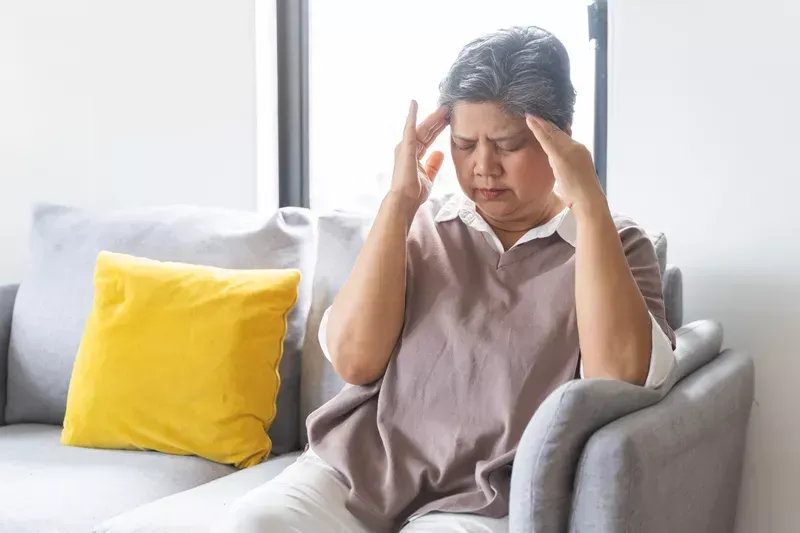BLOG
Understanding Chronic Pain After Brain Injury
Brain injury often results in complex and long-term challenges, including chronic pain that can significantly affect quality of life. This type of pain arises from various factors, such as nerve damage, altered brain signals, or musculoskeletal injuries. For survivors, managing chronic pain becomes a critical part of their recovery journey. Understanding its causes and implementing effective management strategies can help improve daily living for those affected.
Causes of Chronic Pain After Brain Injury
Chronic pain after a brain injury often stems from disruptions in the nervous system. Damage to the brain can alter how pain signals are processed, resulting in heightened sensitivity or prolonged discomfort. This condition, known as central pain syndrome, is common in individuals with brain trauma.
Musculoskeletal injuries sustained during the initial trauma or recovery period can also lead to long-term pain. Joint strain, muscle tension, or improper healing may exacerbate discomfort. Addressing these physical factors through targeted therapies can alleviate symptoms for many survivors.

Headaches, particularly migraines, frequently occur after brain injuries and can become chronic without proper intervention. Stress, light sensitivity, or neurological changes often trigger these headaches. Identifying and avoiding triggers is a vital step in effective pain management.
Inflammation caused by the brain’s healing process may also contribute to chronic pain. While this response is part of recovery, prolonged inflammation can increase discomfort and hinder rehabilitation progress. Therefore, it is essential to work with healthcare providers to address these issues.
The Impact of Chronic Pain on Brain Injury Recovery
Chronic pain can significantly slow down the recovery process for brain injury survivors. Physical discomfort often limits mobility and reduces the survivor’s ability to participate in rehabilitation activities. This can delay progress toward regaining independence.
The emotional toll of persistent pain cannot be overlooked. Many survivors experience feelings of frustration, anxiety, or depression, which may stem from the challenges of living with chronic pain. Addressing these emotional effects is crucial for overall well-being.
Pain also disrupts sleep, further complicating the recovery process. Poor sleep quality can exacerbate cognitive difficulties and physical fatigue, making it harder for survivors to heal and engage in daily activities. Implementing strategies for better sleep is a vital aspect of pain management.
The social impact of chronic pain can lead to feelings of isolation. Due to discomfort, survivors may avoid social situations or activities, affecting their support network. Encouraging open communication with family and friends helps mitigate these effects.
Effective Pain Management Strategies Post-Brain Injury
Managing chronic pain requires a multi-faceted approach tailored to the individual’s needs. Physical therapy plays a key role in reducing pain by improving mobility, strengthening muscles, and addressing physical imbalances. Regular sessions can help survivors regain control over their bodies.
Medication is often prescribed to address chronic pain but must be carefully managed. Options may include anti-inflammatory drugs, nerve pain medications, or muscle relaxants. Regular consultations with healthcare providers ensure these treatments’ safe and effective use.

Mental health support is equally important. Therapy or counseling helps brain injury survivors cope with the emotional challenges associated with chronic pain, fostering resilience and improved quality of life. Cognitive-behavioral therapy (CBT) is particularly effective in addressing the psychological effects of pain.
The Role of Support Networks in Pain Management
A strong support network is invaluable for brain injury survivors dealing with chronic pain. Family members, friends, and caregivers are vital in providing emotional and practical assistance. Their understanding and encouragement can make a significant difference.
Support groups for individuals with brain injuries create opportunities to share experiences and strategies for managing pain. These connections foster a sense of community and reduce feelings of isolation. Regular participation in these groups can improve mental well-being.
Healthcare professionals, including physicians, therapists, and pain specialists, are essential to the support network. Their expertise guides survivors toward effective pain management strategies, ensuring a comprehensive approach to care. Regular communication with these professionals enhances treatment outcomes.
Encouraging open dialogue about pain within the support network builds trust and understanding. Survivors should feel empowered to express their needs and concerns, leading to more effective collaboration in managing their condition.
Emerging Treatments for Chronic Pain
Advances in medical science continue to provide new options for managing chronic pain after brain injury. Neuromodulation techniques, such as transcranial magnetic stimulation (TMS) or spinal cord stimulation, offer non-invasive solutions for altering pain signals. These technologies show promise in reducing persistent discomfort.
Research into regenerative medicine, including stem cell therapy, aims to repair damaged nerve tissues and improve pain outcomes. While still in the experimental stage, these treatments could revolutionize pain management in the future.
Innovations in wearable technology allow survivors to monitor pain levels and track triggers. These devices provide valuable data for healthcare providers, enabling more personalized treatment plans. The integration of technology into pain management continues to enhance patient outcomes.
Ongoing studies into the relationship between brain injury and chronic pain deepen our understanding of this complex condition. As researchers uncover new insights, treatment options will continue to expand, offering hope to survivors and their families.
Conclusion: Addressing Pain for a Better Quality of Life
Chronic pain after a brain injury presents significant challenges, but understanding its causes and exploring effective treatments can help survivors regain control. By addressing both physical and emotional aspects of pain, survivors can improve their quality of life and achieve meaningful recovery milestones.
If you or a loved one needs support in managing chronic pain after a brain injury, reach out to our team today. We’re here to help you navigate the journey toward improved health and well-being.















